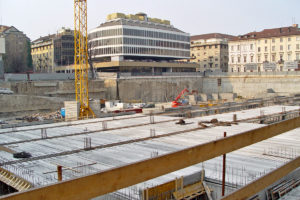 Bill 142, the Construction Lien Amendment Act, 2017 (the “Act”), has recently received royal assent, and will be proclaimed into force in two stages. Amendments respecting lien and holdback rules will come into effect July 1, 2018, and amendments respecting prompt payment and adjudication will come into effect October 1, 2019.
Bill 142, the Construction Lien Amendment Act, 2017 (the “Act”), has recently received royal assent, and will be proclaimed into force in two stages. Amendments respecting lien and holdback rules will come into effect July 1, 2018, and amendments respecting prompt payment and adjudication will come into effect October 1, 2019.
The former Construction Lien Act, R.S.O. 1990, c. C.30, was enacted in 1983, and only minor amendments have been made to it since then. The current amendments represent a thorough and intensive overhaul of the former act. Most notably, the amendments include provisions for prompt payment, a change of name to the “Construction Act”, extension of timelines for preservation and perfection of liens, and a default scheme for timely adjudication.
We have found that contractors, subcontractors, and owners of construction projects in St. Catharines and the surrounding area have been most concerned with the amending provisions that will affect their day to day business. As such, we have included a list of the substantial changes to the former Construction Lien Act below.
Extension of Time for Liens: The timelines for preservation of liens under the former act were often not workable given the commercial realities of accounts receivables in the construction industry. Beginning July 1st, 2018, the deadline to preserve a lien will be extended from 45 to 60 days, from the triggering event for the expiry of liens. The list of applicable triggering events will also be expanded to include contract and subcontract “termination”. The deadline to “perfect” a lien will also be extended from 45 to 90 days after the last date that a lien could have been preserved. These changes allow more time for parties to negotiate and utilize the new interim adjudication process in the Act.
Adjudication: Beginning on October 1, 2019, the Act introduces a default scheme for quick dispute resolution in the form of interim adjudication during the project. Adjudication works alongside the lien provisions in the Act. A party may preserve and perfect a lien while at the same time pursuing adjudication.
The adjudication provisions have strict timelines to ensure the timely resolution of disputes. A Notice of Adjudication initiates the process. The adjudicator must make a written determination, with reasons, within 30 days of receiving the documents from the party who requested the adjudication
The determination is binding on an interim basis and is enforceable. The Act requires that payment be made from one party to another pursuant to an adjudicator’s determination no later than 10 days after the decision is communicated to the parties and imposes mandatory, non-waivable interest on all late payments. Further, the Act allows a party to suspend work if payment is not made pursuant to an adjudicator’s determination, but there is no right to suspend work during the adjudication process. The decision is only binding on the parties until there is a determination by the Courts, an arbitrator or there is a written agreement between the parties concerning the matter.
Prompt Payment
Between Owner and Contractor: Beginning on October 1, 2019, an owner must pay the contractor within 28 days from receipt of a proper invoice. If the owner disputes a proper invoice, the owner must deliver a ‘notice of non-payment’ to the contractor within 14 days of receipt of the proper invoice. If only part of the proper invoice is disputed, the undisputed portion must be paid.
Between Contractor and Subcontractor: A contractor, who receives payment of a proper invoice, must pay the subcontractors that were included in the proper invoice no later than 7 days after receiving payment from the owner. If, notwithstanding payment by the owner, the contractor disputes a subcontractor’s entitlement to payment, the contractor may withhold payment by giving notice of non-payment in the prescribed form.
If the owner fails to pay any part of the proper invoice within 28 days, the contractor must nonetheless pay each subcontractor the amount that was included in the proper invoice, unless the contractor delivers a notice of non-payment to each subcontractor. The notice of non-payment includes an undertaking to refer the matter to adjudication.
If you are a contractor, or have hired a contractor to complete work on a construction project, and have questions about your many newly minted rights under the Construction Act, do not hesitate to contact Daniel & Partners LLP. The Construction Law professionals at Daniel & Partners LLP have wide-ranging experience and are happy to assist at any point in the construction process.
Blog post written by Matteson DeLuca, Associate.






